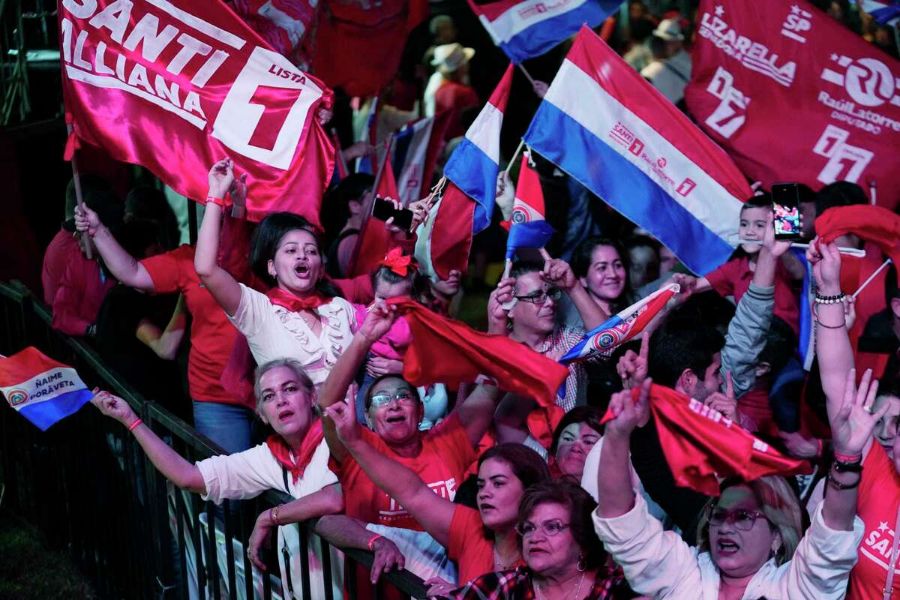
-
Published: 30 April 2023

After the Colorado Party has ruled Paraguay almost uninterrupted since 1947, a broad opposition coalition in Paraguay is seeking to oust South America's longest-ruling party in elections focused on corruption, the economy, healthcare, and even relations with Taiwan.
Edited by| Christian Megan
South America section - CJ journalist
ASUNCIÓN, Paraguay - April,30,2023
All this could change with Sunday’s vote, which is focused on Santiago Peña of the Colorado Party and Efraín Alegre, the candidate of the Pact for a New Paraguay coalition who is also head of the Liberal party, the second-largest political force in Congress.
Paraguay doesn’t have a runoff, so whoever of the 13 candidates receives the most votes will be the next president. Voters are also casting ballots for Congress members.
“Today is the day we have to be protagonists in the construction of the future of the nation,” said outgoing President Mario Abdo Benítez on Sunday after casting his ballot.
Analysts expect a tight contest, with the opposition fueled by anger over high levels of corruption and the deficiencies in the health and education systems that worsened during the COVID-19 pandemic. Paraguay has a relatively stable economy though with high levels of poverty.
“There is a rather strange sense of uncertainty for this stage of the (governing) party because in other elections the Colorados were already assured of victory, which is not the case this time,” said political consultant Sebastián Acha, leader of PRO Desarrollo Paraguay, a group that promotes public policies.
Alegre, a 60-year-old lawyer, is making his third bid for the presidency, though this time he is representing a mix of political parties. Paraguay is the only remaining country in South America to have diplomatic relations with Taiwan, and Alegre has called for those ties to be reviewed, saying they are too costly.
Peña has defended the country’s relationship with Taiwan but says he would seek more trade with China, without explaining how that would come about.
Peña was finance minister in the 2013-2018 government of powerful former President Horacio, who has been accused of corruption and links to terrorism by the United States. and, until recently.
Peña’s presidential campaign was hit by U.S. sanctions on former President Horacio Cartes (2013-2018), for alleged bribery and ties to Hezbollah, which Washington designates as a terrorist group. The sanctions blocked Cartes, who is president of the Colorado Party, from the U.S. financial system and cut off funding and loans for the party’s campaign.
“The sanctions have been lethal,” said Diego Abete Brun, a political science professor who heads the Latin American and Hemispheric Studies program at George Washington University. “Cartes was the financing chief of the Colorado Party. The cash box was left empty.”
Peña said the accusations against Cartes “are groundless.”
{source}<script async src="https://pagead2.googlesyndication.com/pagead/js/adsbygoogle.js?client=ca-pub-4474625449481215"
crossorigin="anonymous"></script>
<!-- moss test ad -->
<ins class="adsbygoogle"
style="display:block"
data-ad-client="ca-pub-4474625449481215"
data-ad-slot="6499882985"
data-ad-format="auto"
data-full-width-responsive="true"></ins>
<script>
(adsbygoogle = window.adsbygoogle || []).push({});
</script>{/source}
